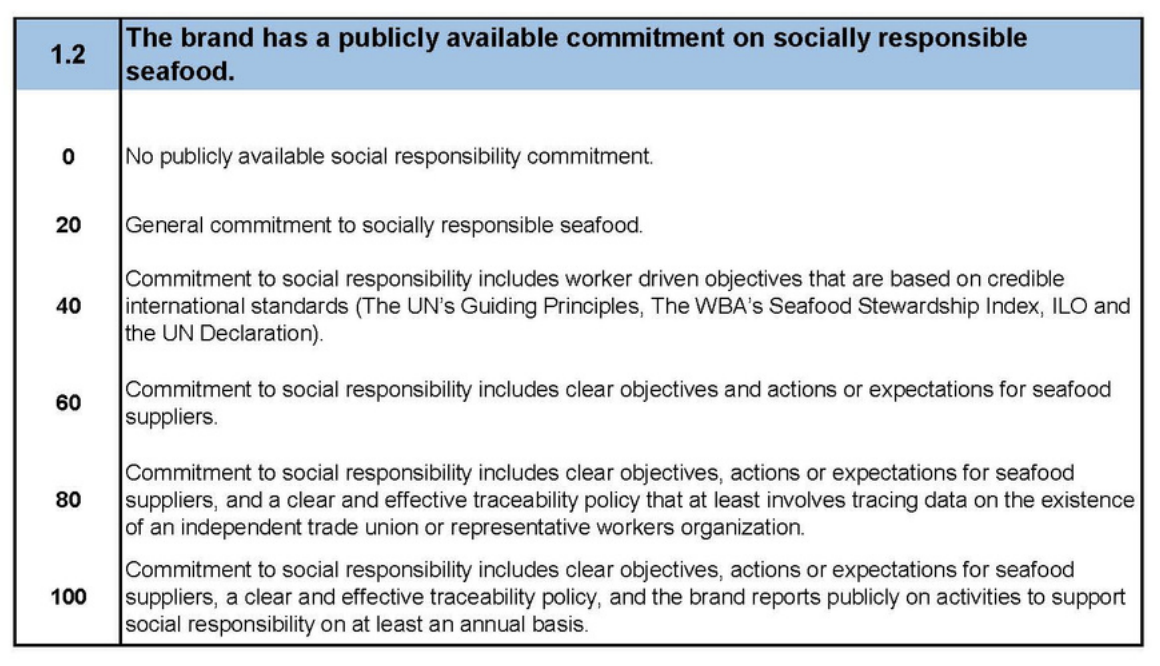SeaChoice’s Seafood Progress Scoring Methodology Includes Key Social Responsibility Indicators
In 2022, Canadian-based SeaChoice, a sustainable seafood program of the David Suzuki Foundation, Ecology Action Centre and Living Oceans Society, updated a Key Performance Indicator (KPI) of its Seafood Progress Scoring Methodology for grocers and brands to include tracing data on the existence of an independent trade union or representative worker organization.
Challenge
Traceability and the collection of Key Data Elements (KDEs) in the context of social responsibility is an evolving topic. While traceability and KDEs have been used extensively in assessing environmental and food safety issues, industry is only just beginning to utilize these tools to address human and labor rights issues in supply chains. But determining how to effectively leverage traceability to promote decent work in the seafood sector is tricky.
KDEs such as wages, rest hours, grievance mechanisms, and recruitment agency fees can help inform an assessment of the level of risk in a given supply chain. However, verifying the accuracy of this information is challenging; the only way to validate it is to ask workers directly, which can be difficult for end-buyers to do, especially in a way that protects worker confidentiality and safety.
Research led by the Seafood Alliance for Legality and Traceability (SALT) found that, given the challenges around verification and validating information with workers, two labor-specific KDEs are essential to understanding risk to workers. These KDEs are:
- Existence of an independent trade union or representative worker organization
- Name of the union or worker organization.
2024 update
In 2024, FishWise published a new report, “Sustainable Seafood: Data-Driven Approaches to Social Responsibility,” that aims to “clarify how existing and proposed traceability systems, due diligence activities, and the data they generate can be leveraged to address human and labor rights issues in seafood supply chains.” In this document, FishWise clarifies the difference between KDEs and risk indicators. Based on this new research, FishWise would now qualify the two pieces of data above (trade union or worker organization and its name) risk indicators, which are collected via due diligence activities or supplier engagement, not KDEs, which are collected via product-based traceability systems.
As companies design and implement traceability policies, it is essential that they include these KDEs to inform their understanding of human and labor rights risks in their supply chains.

Strategy
SeaChoice is a program with Canadian roots and a global reach. Canada’s role as a significant exporter and importer within the global seafood supply chain allows SeaChoice the opportunity to connect its novel approaches, advocacy, and watchdog work to international networks.
Before introducing Seafood Progress in 2018, SeaChoice focused on increasing consumer awareness and developing materials on seafood sustainability in Canada, with the aim of shifting seafood procurement toward sustainable options. SeaChoice helped consumers make sustainable seafood purchases using a red/yellow/green ranking system and worked directly with Canadian retailers to “establish sustainable seafood purchasing policies and to implement market-facing sustainable seafood programs.”
Through the online tool Seafood Progress, SeaChoice now profiles major retailers and seafood brands annually helping to improve their sustainable seafood commitments and drive progress. SeaChoice ensures Seafood Progress stays aligned with the latest research and “best practice” in the social responsibility space, including in the context of traceability.
SeaChoice also drives environmental and socio-economic improvements throughout global supply chains by:
- Using market leverage to improve some of the least sustainable fisheries and aquaculture production
- Ensuring that seafood certification and ranking systems are as robust as possible
- Improving transparency and traceability in the seafood supply chain by reforming seafood labeling and traceability legislation in Canada, verifying seafood labeling through DNA testing in Canadian markets, and incentivizing voluntary improvements for traceability
Outcome
In 2023, SeaChoice incorporated findings from the SALT research on social risk KDEs into its methodology. As outlined below, KPI 1.2 includes metrics regarding the existence of an independent trade union or representative worker organization.

This change in the scoring methodology prompted engagement from brands and grocers – raising awareness and educating about the importance of supporting freedom of association and collective bargaining all the way up the supply chain.
Looking Forward
The seafood industry at large is leaning farther into worker-led and worker-driven approaches to social responsibility. One of the best examples of the seafood industry moving towards incorporating worker-driven models of social responsibility in supply chains is that of the International Transport Workers’ Federation (ITF) and the Fair Food Program (FFP). The two announced collaboration to explore implementation of the Worker-driven Social Responsibility (WSR) model in the UK fishing industry.
Brands and retailers have a role to play in meaningfully elevating and incorporating worker voice by exerting pressure to support freedom of association and collective bargaining all the way up the supply chain. The industry needs transparency and traceability in support of these positive changes – hence Seachoice’s Seafood Progress KPI 1.2. By relying on thoughtful and measurable indicators, they are moving the industry forward into more socially responsible practices.
